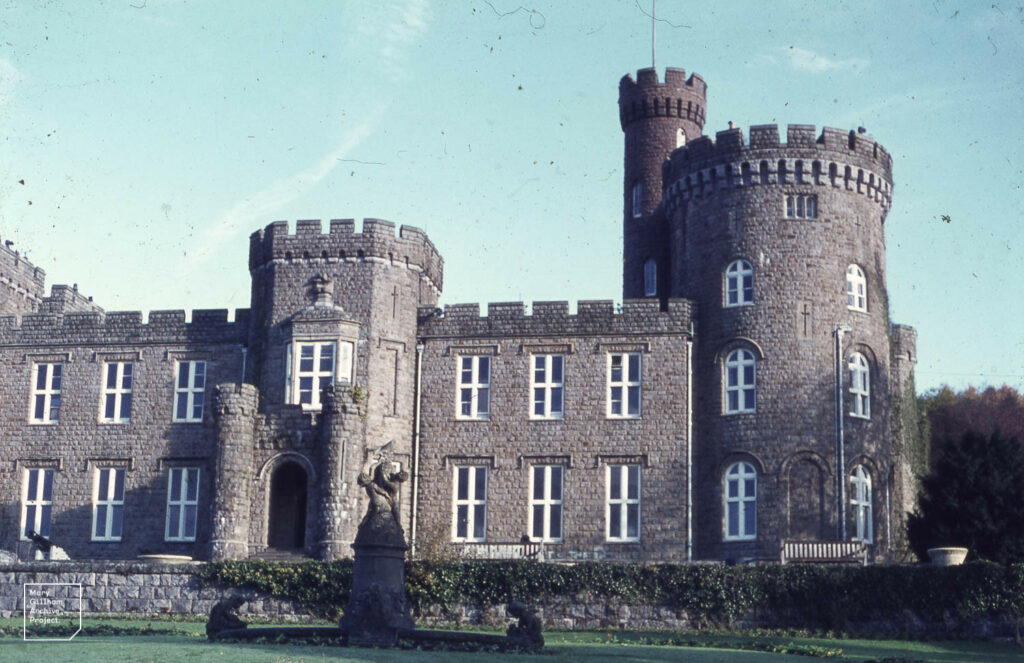As the event’s anniversary celebrations draw near, Adam Johannes remembers the Merthyr Rising of 1831, and says its spirit lives on today.
Job cuts. Wage cuts. Price rises. Everyday people protesting are fired upon by the British army, massacring dozens. The protestors fight back hard and raise the red flag. Armed workers drive out the rich and take over Merthyr, placing it under ‘workers control’. They throw up barricades on the roads leading into the town. The authorities are surrounded and under siege in their own headquarters. Another battalion of the British army is surrounded and disarmed. For five glorious days working class people rule the town in spite of the army and British state who eventually crush them.
In 1831 in Merthyr Tydfil the Welsh working class exploded onto the pages of history in a ferocious uprising unprecedented in the history of this island.
It is no accident that popular novelist Alexander Cordell was to title his account of the Merthyr Rising, The Fire People. What happened in Wales has historic significance. This was the first time the Red Flag of rebellion and revolution was raised on this island as the working class took independent action as a class-for-itself, a time when, for almost a week, the people could start to feel the real taste of a democratic society run by the poor and organised from below rather than by grasping elites. It took a thousand British troops to smash the dream.
At that time, Merthyr was a wild ‘frontier town’, the town of pig-iron – over a third of all iron in Britain was dragged up from the mines of Merthyr. It was a fluid town, being rapidly reshaped in the furnace of the industrial revolution. It was part of a global economy resting on slavery. It was the ironmasters’ plantations in the West Indies that had provided the cash to sink mines deep into the earth in Wales.
All kinds of people were being uprooted and little changes in consciousness were taking place. Everyday people felt a sense of dislocation living in a world that was changing fast. They had come in from the countryside with old traditions of rural solidarity to be herded into what was the largest and fastest growing town in Wales at the time. Many were temporary and seasonal workers who would make a long trek back to the west of Wales at harvest time. Many of the workers were familiar with subversive literature from London that was circulated. The latest political pamphlets and Jacobin writings were eagerly passed around and discussed.
With talk today of a cost of living crisis, we do well to remember that it was such a crisis that laid the foundations for poor and working people taking direct action in Merthyr.
A British economic depression starting in 1829 became the tinder that lit a fire three years later. Times were hard, with the prices of basic goods rising. People began to be forced into debt just to survive, and faced having the Court of Requests seize their property.
By 1831, bailiffs were extremely active in the area and goods were being seized on a regular basis. There was a river of political discontent too – protests against the Corn Laws, marches for parliamentary reform.
The town also teemed with immigrant workers who had come into the industrial centre from neighbouring parts of Wales and England. They brought different political traditions and vibrant cultures to the place. They were young and chaotic, prone to wild enthusiasms, destined to be swept into currents of history that would carry the whole town with it.
Another strata of the discontent was the ‘shopocracy’, a middle class strongly influenced by liberal-democratic traditions and a Unitarian faith.
For a brief week the streets of Merthyr transmute into a festival of the oppressed.
Above all this loomed the local bosses: four local iron masters who like lords ruled this wild place and its economy. In May, the ironmasters began to make men redundant and forced wage cuts, crystallising working class discontent into a profound rage against the existing order. The political atmosphere in the town heightened. Thousands took to the streets that month, to take out their anger on the rich. ‘Ringleaders’ were arrested.
This might have been the end of the matter, but thousands forced the magistrates to set them free.
This was the birth of popular power in South Wales. And for a brief week the streets of Merthyr transmute into a festival of the oppressed.
A simple outline of events reads like a movie-script.
A poor but defiant man, defends his home from bailiffs. They attempt to seize goods from his home, but during the night he finds allies, and is supported by his neighbours who prevent them entering the humble abode.
The name of our hero is Lewis Lewis (Lewsyn yr Heliwr). He may be a kind of Bakunin of the barricades, an Emilano Zapata type leader who would rather die on his feet than live on his knees. But at this point, he is just a poor man standing up against injustice who steps onto the stage of history at the right moment.
The bailiffs call the magistrate, and a compromise is brokered: the bailiffs can remove a single trunk belonging to Lewis Lewis.
So far, so good. But within 24 hours, there is a march from Hirwaun led by Lewis Lewis to the home of the shopkeeper who now owns his trunk. The crowd take the trunk back by force and return to Merthyr.
On the way, they go, house to house, reclaiming goods that the bailiffs and debtors Court of Requests had repossessed from the poor and return them to their owners. Like Robin Hood they ransack the home of one of the Bailiffs and take his property.
The name of Joan Jenkins is little known today unlike those of Lewis Lewis and Dic Penderyn, but it will be next to her that Penderyn stands in court as she is sentenced to hard labour for her part in the Merthyr rising.
The crowd is growing, swelled by angry working men from Cyfartha and Hirwaun ironworks and they march into the area near the Castle Inn, where the wealthier members of the community reside. A hated moneylender has his house laid siege to. He is forced to sign a pledge to return the goods of a woman whose goods had been seized for defaulting on a debt.
Women play a vanguard role in the rioting. The name of Joan Jenkins is little known today, unlike those of Lewis Lewis and Dic Penderyn, but it will be next to her that Penderyn stands in court as she is sentenced to hard labour for her part in the Merthyr rising.
It is Joan Jenkins who will be at the head of a tremendous crowd who take matters into their own hands, seizing back a clock, a box, two tables and a chair, marking the beginning of the people locating and identifying goods stolen from the poor, by legal process, to return to their original owners.
By now, a local magistrate fears that the town is close to being in the grip of mob rule. But this isn’t a ‘mob’, it’s a popular revolt against the Court of Request – with justice on its side.
Gofod i drafod, dadlau, ac ymchwilio.
Cefnogwch brif felin drafod annibynnol Cymru.
The magistrates, all middle class, call in seventy special constables to restore ‘order’. A message is sent to the Brecon garrison to warn that troops may be needed. The ironmasters try to get the crowd to disperse. The Riot Act is read out. The crowd not only ignore these pleas but proceed to drive the Magistrates out of town. As things escalate, the crowd assemble outside the house of the President of the Court of Requests, demanding the court records and records of debtors.
Following a mass meeting on Hirwaun Common where different political factions debate and argue, the records are publicly burnt down in the street, along with the court house. Appropriately during the mass meeting, Lewis Lewis leapt upon his recovered trunk to make the speech that will launch the insurrection.
Internationalist and radical slogans are being chanted: ‘Remember Paris!’, ‘Bread AND CHEESE!’, ‘Down with the King!’ and ‘Remember Poland!’.
Working class insurgents are now storming all the local Bastilles. The offices of the bailiffs, where property repossessed from the poor has been kept, is razed to the ground, along with the records of the debt. Demonstrators then marched on the local mines, demanding that the workers stage a general strike.
Something else dramatic is about to happen. Some unknown proletarian will do something unprecedented that will create a new symbol of workers power: a white sheet is taken and dipped in the blood of a calf to make a red flag that is placed at the head of the ten thousand strong march – the first time the red flag is raised in Britain!
The burning down of the hated debtors court represents a profoundly symbolic moment of liberation. Akin to the kicking over of the statues in the 1989 events in Eastern Europe, or the anarchists burning ‘immoral money’ in the looted gun-shops of Barcelona, or jubilant workers shooting the clocks off churches in the Paris Commune, it is a deep cry against the injustice of this world where the big fish always eat the small fish.
By now, troops are being dispatched. At the same time the crowd form flying pickets, marching on local ironworks to persuade workers to walk out in wildcat strikes and join the movement. Internationalist and radical slogans are being chanted: ‘Remember Paris!’, ‘Bread AND CHEESE!’, ‘Down with the King!’ and ‘Remember Poland!’.
The insurgents meet the soldiers of the 93rd Highlanders and force them to retreat to the Castle Inn where the agents of the old order – the bosses, the magistrates, and soldiers from the British army – are besieged. The workers dispatch emissaries to the bosses demanding concessions: a wage rise, a reduction in the price of bread, but the bosses refuse to negotiate with (what they call) a rabble.
When the workers refuse to disperse, the Ironmasters order their soldiers to open fire on the crowd, murdering two-dozen men and women. The workers fight back, keeping the inn under siege, and return fire. By now the insurgency and the ordinary people are in effective control of the town. Roadblocks and barricades are set up, and armed workers guard checkpoints into the town. When the Swansea Cavalry arrive from Aberdare they are surrounded and disarmed. There is an attempt to spread the revolution, with delegates of workers rushing to other local towns.
The rising finds an echo. Hundreds of workers from other areas of Wales are only prevented from entering Merthyr by troops under the lead of another local boss. The magistrates also flee town and make their way to Cardiff, Newport and London for reinforcements. Fierce clashes take place between insurgent workers and soldiers over the next 48 hours. There must have been a millenarian mood of people demanding utopia now.
To buy time, as reinforcements are being sent, the bosses offer concessions. This spreads confusion through the working class movement, with some believing the rising should end, while others wanting to press for more. As the movement stalls, a thousand troops are arriving on the scene. Soon they have re-established ‘order’.
Rather than make a martyr of the leaders, the authorities choose to make an example of an ordinary working man.
In the aftermath of what becomes known as the Rising, the old order takes revenge. Lewis Lewis is transported to Australia. A young miner by the name of Richard Lewis, better known as Dic Penderyn, is arrested and thrown in gaol.
Rather than make a martyr of the leaders, the authorities choose to make an example of an ordinary working man. They pick a typical worker from the community, one of many young men who had flocked to Merthyr from elsewhere looking for work, frame him on trumped up charges of stabbing a Scottish soldier, and hang him in Cardiff.
They want to see an ordinary worker die – to show all ordinary workers what will be in store for them if they dare to rise up against injustice.
Penderyn becomes a popular hero. Thousands will sign a petition for his release, and his coffin is followed by thousands to its burial ground.
But what Penderyn stood for is not buried. Over the next hundred years, the workers of South Wales will become known as the most militant in Britain.
There are many good ways to remember our secret heroes, Dic Penderyn and Lewis Lewis, on the anniversary of the Merthyr Rising. Join campaigns like People’s Assembly Wales who want to build a similar community rebellion today. Attend the Merthyr Rising festival later this month. Join the TUC We Demand Better march in London on June 18th. You could visit the picket line of railway workers when they strike soon. You can read Gwyn Alf Williams’ masterful book, The Merthyr Rising, that could have been called The Making of the Welsh Working Class. Take Alexander Cordell’s novel about the Merthyr rising, The Fire People as your holiday reaching with you to Barry Island beach. And if you are working class or poor, hold your head high: Lewis Lewis and Dic Penderyn did it for us!
But also: if you live in Cardiff go to the indoor market on St Mary’s Street and see the place where Dic Penderyn was hanged in 1831. Gaze with solemn wonder at the plaque to remember him.
His last words: ‘O Arglwydd, dyma Gamwedd’, ‘Oh Lord, this is injustice’. This man – this everyman – was a hero and martyr of the working class. He died young, aged just 23, but his spirit lives on!
All articles published on the welsh agenda are subject to IWA’s disclaimer.





